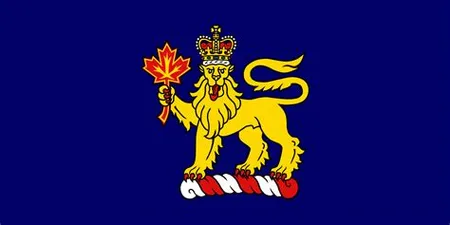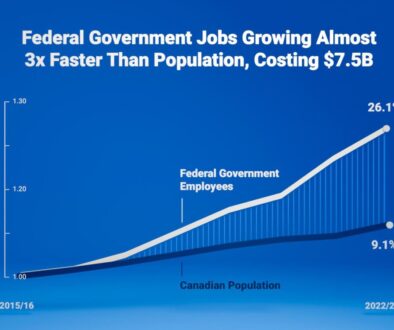Canada as a corporate state
Canada is generally known as a constitutional monarchy in the Westminster tradition. The head of state is the monarch {king or queen}, whose powers are defined by the Constitution and constitutional conventions. These responsibilities are carried out by the Governor General, who represents his Majesty The King at the federal level, and the head of the parliament is usually the leader of the strongest party- the prime minister, who holds the office with their ability to command the confidence of the elected House of Commons.
The rules and regulations which affect nearly every aspect of everyday life, so called “law”, must be pass by the legislative process. A new law must be approved by the “elected” members of parliament {MP} in the lower chamber, and then it must be passed by the appointed representatives in the Senate. Once the bill has been passed in the same form by both Chambers, it goes to the Governor General {who represents the monarch} for Royal Assent and then becomes “Canadian law”. Senators are appointed by the governor general as well.

{flag of the governor general of Canada}
Canadian fundamental “law” is allegedly a constitution, declared by the Constitution Act, 1867, originally enacted as the British North America Act, 1867, which established Canada as a dominion divided into four provinces: Ontario, Quebec, Nova Scotia and New Brunswick. Later, the other provinces and territories became part of Canada. In 1982, the parliament allegedly passed The Constitution Act, 1982, which introduced several amendments to the British North America Act, 1867.
Canada has also institute of the Privy Council, which is a group of cabinet ministers, former ministers and other prominent Canadians appointed to advise the King on issues of importance to the country, including state and constitutional affairs. The members of the King’s Privy Council are appointed for life, by the Governor General.
Basically, by the aforementioned means, Canada is 100% still under the control of the monarch; currently King Charles III, who through the power of the Governor General represents his will over the country at the federal level, and at the provincial level by the Lieutenant Governor of British Columbia.
The British North America Act, 1867, section 2 states: The provisions of this Act referring to Her Majesty the Queen extend also to the Heirs and Successors of Her Majesty, Kings and Queens of the United Kingdom of Great Britain and Ireland. But, the Imperial {British} Parliament in 1893 repealed section 2 of the British North America Act by The Statute Law Revision Act, 1893, enacted the same year by Queen Victoria. This means there is no publicly acknowledged specific document authorizing the members of the monarchy to be involved in the affairs or to have any office of status in the realms known as Canada and British Columbia.
https://www.justice.gc.ca/eng/rp-pr/csj-sjc/constitution/lawreg-loireg/p2t31.html
Prime Minister Pierre Trudeau tried to fix this legal vacuum when his cabinet approved The Constitution Act, 1982, which was enacted as a schedule to the Canada Act, 1982. Trudeau attempted to give Canada status as an independent country with a {legitimate} parliament and a Constitution [de jure}, and the ability to make its own laws {de jure} and govern itself.
The Proclamation of the Constitution Act, 1982, contains conditions or subjects under which the Constitution Act, 1982 takes effect: it is subject to section 59, a proclamation shall be issued only after being authorized by the legislative assembly or government of Quebec, which to date, has not happened.
https://freeshuswap.com/canada-act-1982/
So, if we don’t have any legal law, what is the real current system operating the country named Canada? The “Crown” is highly running Canada by the corporate law, base of Royal Charter of the Hudson Bay Company, since 1670. By this charter all land and resources are owned by the monarch of England.

Photo source: www.historymuseum.ca
As of today, the country Canada is the company registered on the Securities and Exchange Commission {SEC} under company name Canada, with central index key {ID number}: 0000230098. The standard industrial classification is foreign government. Business address is address of the Canadian Embassy, 501 Pennsylvania Ave, NW, city of Washington, state DC, and mailing address Department of Finance, 90 Elgin Street, Ottawa, Ontario.
The same is applied for the Province of British Columbia, registered with central index key {ID number}: 0000836136, business address Ministry of finance, 620 Superior Street, Victoria.
https://www.sec.gov/cgi-bin/browse-edgar/?filenum=333-82846&action=getcompany
As mentioned above, the corporation of Canada is running by the corporate law, which Chief executive officer {CEO} is Charles Philip Arthur George, alias King Charles III, and top management is the King’s privy council, following by the multiple levels of government management and institutions, supported by thousands of private companies. Political parties and election are only for public distraction, so people believe they can influence this corporate state by democratic principles, including all levels of the governments.
Basically, all government institutions are legal corporations, charities, or non- profit organizations. Incorporated cities are corporations, School district and the Interior Health are the charities, and so on.
Every corporation has the same structure: the CEO is the head of the company, and under the CEO are managers or directors of the various departments. The higher the person’s position in the corporation, the more money they make. For example, the CEO of the City of Salmon Arm earn over $170.000 per year, directors or managers make $100,000 to $130,000, while elected mayor “only” $75,000 and elected councillors little bit over $30,000. All agendas for council meetings are already prepared by the CEO, and the city management, and the council just formally approves and signs the paperwork, to keep the illusion of “democracy” alive. And remember, the main goal of the corporation is to make a profit.
Or as Cal Washington stated:” Internationally, all corporations are registered under the Uniform Commercial Code, UCC. The UCC is a modern version of Law Merchant. Law Merchant are ancient customs that are still operating today. Contract Law has to give full disclosure, but you have to demand disclosure, they are not going to do it for you. The agents of the King are ignorant of most of this information, by design, to protect the King.”
Cal continued:” People are so deep in their beliefs that this information throws them for a loop and it takes a while to sink in. Once it does, a lot of the puzzle pieces that did not make sense before, start to make sense. When you realize they are operating under this charter, it makes sense. It all becomes crystal clear. As far as pension plans and benefits, if you do not recognize Canada as a country, you must waive your benefits and give them up. When you go for the benefits, you waive your rights. They don’t tell you that, but that’s how it works. It’s an agreement. Each person has to decide. Hold your ground, and they stay away from you. It takes courage, conviction, and inner strength, to maintain your authority. In the end, it has to do with us and our souls and if we can change. Ultimately, we decide. The royals are just using us as pawns to create a reality and we are following it, but if enough of us turn away, its over. Once we hit a critical mass…”
DB, MC



